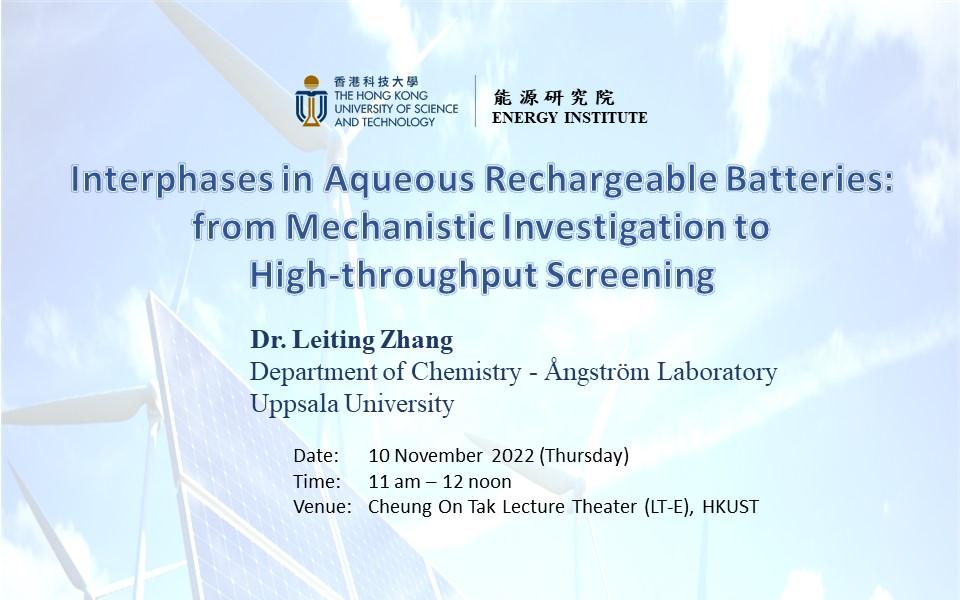Interphases in Aqueous Rechargeable Batteries: from Mechanistic Investigation to High-throughput Screening
Supporting the below United Nations Sustainable Development Goals:支持以下聯合國可持續發展目標:支持以下联合国可持续发展目标:
Aqueous rechargeable batteries are appealing alternatives for large-scale energy storage. Reversible cycling of high-energy aqueous batteries has been showcased using highly concentrated aqueous electrolytes, which leads to a significantly suppressed water activity and formation of a stable solid–electrolyte interphase (SEI). However, the high salt concentration inevitably raises the cost and compromises the environmental sustainability. In this presentation, the feasibility of cycling aqueous cells in dilute electrolytes will be discussed with examples. Advanced operando characterizations are utilized to unveil the complex interfacial chemistry in dilute electrolytes, taking into account material reactivity and interfacial compatibility. A high-throughput electrolyte screening platform, which is able to automatize coin cell assembly and testing processes, will be coupled with machine learning to accelerate material discovery of sustainable aqueous batteries.
Dr. Leiting Zhang is currently an incoming assistant professor at the Department of Chemistry – Ångström Laboratory, Uppsala University, Sweden. He is the recipient of the 2022 Starting Grant from the Swedish Research Council. Dr. Zhang obtained his PhD degree in Chemical Engineering from The Hong Kong University of Science and Technology and College de France, co-supervised by Prof. Guohua Chen, Prof. Minhua Shao, and Prof. Jean-Marie Tarascon. Before joining Uppsala University, Dr. Zhang spent three years at the Paul Scherrer Institute (PSI) in Switzerland as a postdoc, specializing in operando gas analysis of battery chemistries. His current research interests are aqueous batteries, advanced operando characterizations, sensing, and automation.
